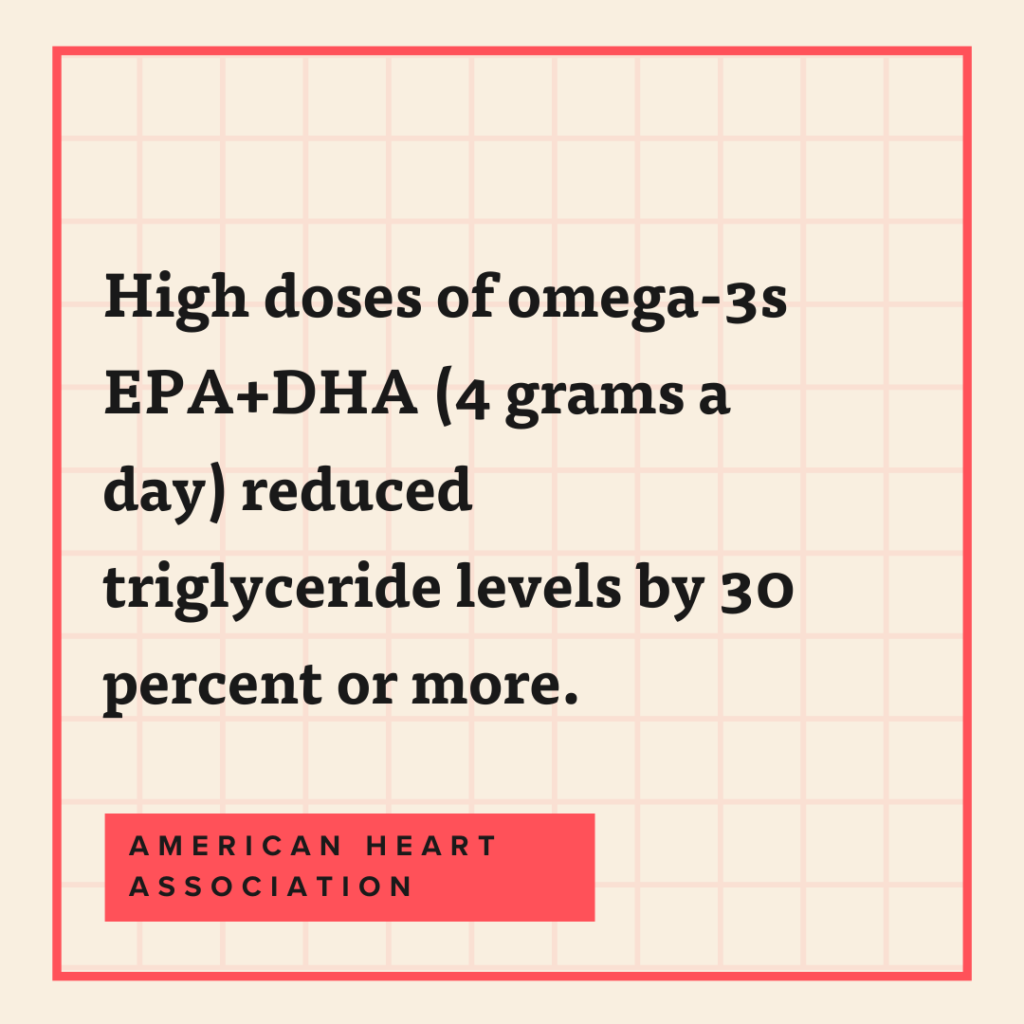Fish Oil or Snake Oil?
- By Alisa Bowman, CNC
- Fact-checked by Joy Ferguson
- March 7, 2023
Fast Facts
- Omega-3 fatty acid supplements were long believed to support heart, bone, and joint health as well as fish.
- Recent research suggests that fish oil supplements may not be as beneficial as we once thought.
- You can still get the benefits of omega-3s by eating fish.
Not all that long ago, omega-3s were the rockstars of the supplement world, with physicians recommending them for everything from knee pain to heart problems. Within the past year, however, both Harvard and the Cleveland Clinic have suggested that fish oil’s benefits for men may not entirely live up to the hype, especially when it comes to preventing heart disease and stroke.
Below, we dig into this dramatic about-face and sort through the evidence on which conditions they may help with, starting with the most controversial: Heart disease and stroke.
Heart Disease and Stroke
Fish oil got its rep as a magic heart-disease reducing ingredient in the 1970s, when Danish doctors revealed dramatically low rates of coronary artery disease among Inuit people in Greenland who consumed a diet that was high in omega-3s from fish, whale blubber, and seal, but dismally low is fruits and veggies (1).
This study sparked a flurry of research and elevated fish to star food status. And initially, other studies seemed to support their findings (2). By the aughts, the American Heart Association (AHA) began recommending fish oil to people with heart disease (3).
Problem is, recent research hasn’t found the same benefits.
A recent study of patients with high cardiovascular risk published in the prestigious Journal of the American Medical Association (more popularly known as JAMA) found that omega-3 supplements were no more protective at reducing risk for heart attack or stroke than corn oil (4). And just in case it isn’t clear: Corn oil isn’t protective.
And a recent Cochrane review of 79 studies determined that omega-3 intake had no effect on mortality or cardiovascular health (5).
Eating more fish itself does appear to be beneficial for heart health: After viewing the results of 45 studies, researchers found that for every 20 grams (almost an ounce) of fish consumed daily that the incidence and mortality from heart disease dropped an average of 4 percent (6).
“And omega-3 supplements do help with some risk factors for heart disease,” says Taylor Grasso, RDN, LD, a registered dietitian based in Denver, Colorado.

According to the AHA, high doses of omega-3s EPA+DHA (4 grams a day) reduced triglyceride levels by 30 percent or more (7). That’s important because elevated triglyceride levels can contribute to narrowing of the arteries, increasing your risk of heart disease, stroke, and heart attack. The evidence is strong enough that the FDA has approved prescription omega 3s to treat people whose levels are dangerously high.
In studies, taking two to three grams of omega-3s daily also lowered blood pressure by an average of about 2 to 3 mm Hg, according to a review in the Journal of the American Heart Association (8).
If a two to three point drop in pressure doesn’t sound particularly impressive, know this: A large study found that for every 2 mm Hg drop in systolic pressure, your risk of dying from coronary heart disease goes down by 4 percent, and your risk of dying from stroke is reduced by 6 percent.
Omega-3 supplements also seem to reduce levels of C-reactive protein (a marker of chronic inflammation). And chronic inflammation has been linked to heart disease. (9)
So where does that leave you?
For now, if you want the heart protective benefits of omega-3s, you may be best off eating real fish, say Cleveland Clinic docs.
If you’re not a fan of fish though, it’s worth talking to your healthcare provider about supplements. “I often recommend an omega-3 supplement to help with inflammation, especially in athletes or physically active people who are not eating marine-based foods like salmon or shellfish very often,” says Grasso.
Joint Pain
“Omega-3s are part of cell membranes where they help keep inflammation in check,” says James Giordano, Ph.D. Pellegrino Center professor of neurology and biochemistry at Georgetown University Medical Center and adjunct professor of psychiatry at the University of the Health Sciences in Bethesda, Maryland.
In one review of studies, people with rheumatoid arthritis (an autoimmune condition that affects the joints) who took at least 2.7 grams of omega-3s a day for three months were able to take fewer anti-inflammatory meds (10, 11). In other words, omega-3s might not ease joint pain and stiffness entirely on their own, but they might dial back the pain alongside other treatments.
Omega-3 fatty acids may also slow the progression of osteoarthritis by reducing inflammation, which in turn helps to protect cartilage (12).
Depression
It’s thought that depression is, at least in part, associated with inflammation in the brain. Some experts believe that omega-3 fatty acids—particularly EPA—can help reduce this inflammation and lift your mood (13).
But don’t swap your therapy sessions for a trip to GNC just yet: research suggests fish oil supplements work best when they’re combined with standard antidepressant therapies.” (14, 15)
Brain Aging
As with so many of the health conditions mentioned in this story, omega-3s potential to reduce inflammation may help to slow brain aging.
In one study, older men and women (age 62 to 80) took fish oil or a blueberry extract or a combination of both. After 24 weeks, the study participants who took fish oil reported fewer cognitive difficulties in everyday life (16).
How to Increase Your Omega-3 Levels
“Food is always your first and best defense against premature aging, says aging,” says Grasso. “This is especially true of omega 3s.”
The US Dietary Guidelines for Americans recommends consuming eight ounces of fish per week. Sardines, salmon, tuna, and anchovies are solid sources of omega-3s.
If you’re not consuming fatty, cold-water fish two to three times a week, Grasso recommends a supplement. You can choose from fish oil, fish liver oil, krill oil, algal oils (vegetarian), and flaxseed oil (also vegetarian).
“Krill oil is the best omega-3 supplement because it gets omega fatty acids into your cells more effectively than other sources of fish oil,” says Giordano.
References
1. Fodor JG, et al.(2014). “Fishing” for the origins of the “Eskimos and heart disease” story: facts or wishful thinking?
2. Mozaffarian D, Rimm EB (2006): Fish intake, contaminants, and human health: evaluating the risks and the benefits.
3. Lichtenstein AH, Appel LJ, Brands M (2006): Diet and Lifestyle Recommendations Revision 2006. A Scientific Statement from the American Heart Association Nutrition Committee.
4. Nicholls SJ, et al. (2020): Effect of High-Dose Omega-3 Fatty Acids vs Corn Oil on Major Adverse Cardiovascular Events in Patients at High Cardiovascular Risk: The STRENGTH Randomized Clinical Trial.
5. Abdelhamid AS, et al. (2018) Omega 3 fatty acids for the primary and secondary prevention of cardiovascular disease.
6. Zhang B, et al. (2020): Fish Consumption and Coronary Heart Disease: A Meta-Analysis.
7. Skulas-Ray AC, et al. (2019) Omega-3 Fatty Acids for the Management of Hypertriglyceridemia: A Science Advisory From the American Heart Association.
8. Zhang X, et al.(2022) Omega-3 Polyunsaturated Fatty Acids Intake and Blood Pressure: A Dose-Response Meta-Analysis of Randomized Controlled Trials.
9. Pan L, et al. (2021) Omega-3 Polyunsaturated Fatty Acids Can Reduce C-Reactive Protein in Patients with Cancer: A Systematic Review and Meta-Analysis of Randomized Controlled Trials.
10. Lee YH, et al. (2012) Omega-3 polyunsaturated fatty acids and the treatment of rheumatoid arthritis: a meta-analysis.
11. Kostoglou-Athanassiou I, et al. (2020) The Effect of Omega-3 Fatty Acids on Rheumatoid Arthritis.
12. Calder PC. (2019). Omega-3 fatty acids and inflammatory processes.
13. Liao Y, et al (2019). Efficacy of omega-3 PUFAs in depression: A meta-analysis.
14. Burhani MD, Rasenick MM. (2017) Fish oil and depression: The skinny on fats.
15. Tung TH, et al. (2021) New Insights into Depressive Disorder with Respect to Low-Grade Inflammation and Fish Oil Intake.
16. McNamara RK, et al. (2018) Cognitive response to fish oil, blueberry, and combined supplementation in older adults with subjective cognitive impairment.














